CALL TODAY 646-846-1136 | EMAIL
Surgical Experts Dedicated to Improving Lives
At Lenox Hill Minimally Invasive Surgery PLLC, Dr. Valery Dronsky and his staff of medical professionals provide compassionate care with the highest ethical & professional standards. In our state of the art facility, we offer surgical services using only the most cutting edge and current procedures and treatments. We specialize in general surgery, including extensive experience in performing hernia repair surgery. Our expertise is in minimally invasive surgery and robotic surgery. Minimally invasive and robotic surgery often allow patients to experience easier recovery than traditional open surgery. They also allow for more precise and less traumatic surgery. When robotic and minimally invasive surgery is not an option, we are also skilled and experienced in traditional open surgical procedures.
Dr. Dronsky is an experienced and highly skilled surgeon having undergone extensive training in school, residency and fellowships. He practices medicine with ethical behavior, compassion and superb bedside manner. In the operating room he exhibits precision mechanical abilities, analytical thinking and the ability to visualize tissue in three dimensions. These innate and learned skills allow Dr. Dronsky to be one of the most dexterous and skilled professionals in New York City and the Country.
Call us: 646-846-1136
PATIENT TESTIMONIALS
Recent Awards
We are honored and deeply appreciative to have consistently received prestigious awards and recognition year after year, establishing us as one of New York’s foremost hospitals for a wide range of general surgeries, safety measures, specialized procedures, and overall excellence in healthcare. At Lenox Hill Minimally Invasive Surgery, our unwavering commitment lies in delivering exceptional care and unwavering support to our patients, guaranteeing their safety and successful recovery throughout their entire surgical experience.
Hospital Quality Awards
 America’s 50 Best Hospitals Award™ (2023, 2022)
America’s 50 Best Hospitals Award™ (2023, 2022)
Top 1% in the nation for providing the highest clinical quality year over year.

America’s 100 Best Hospitals Award™ (2021)
Top 2% in the nation for consistently delivering clinical quality year over year.

America’s 250 Best Hospitals Award™ (2023, 2022, 2021)
Top 5% in the nation for consistently delivering clinical quality.

Patient Safety Excellence Award™ (2023, 2022)
Top in the nation for providing excellence in patient safety by preventing infections, medical errors, and other preventable complications.
Specialty Clinical Quality Awards

America’s 100 Best Hospitals for Cardiac Care Award™ (2023, 2022, 2021, 2020, 2019)
Superior clinical outcomes in heart bypass surgery, coronary interventional procedures, heart attack treatment, heart failure treatment, and heart valve surgery.

America’s 100 Best Hospitals for Coronary Intervention Award™ (2023, 2022, 2021, 2020, 2019)
Superior clinical outcomes in coronary intervention procedures (angioplasty with stent).

America’s 100 Best Hospitals for Prostate Surgery Award™ (2023, 2022, 2021)
Superior clinical outcomes in prostate removal surgery and transurethral resection of the prostate.
Click to see all of our Healthgrades best doctors awards
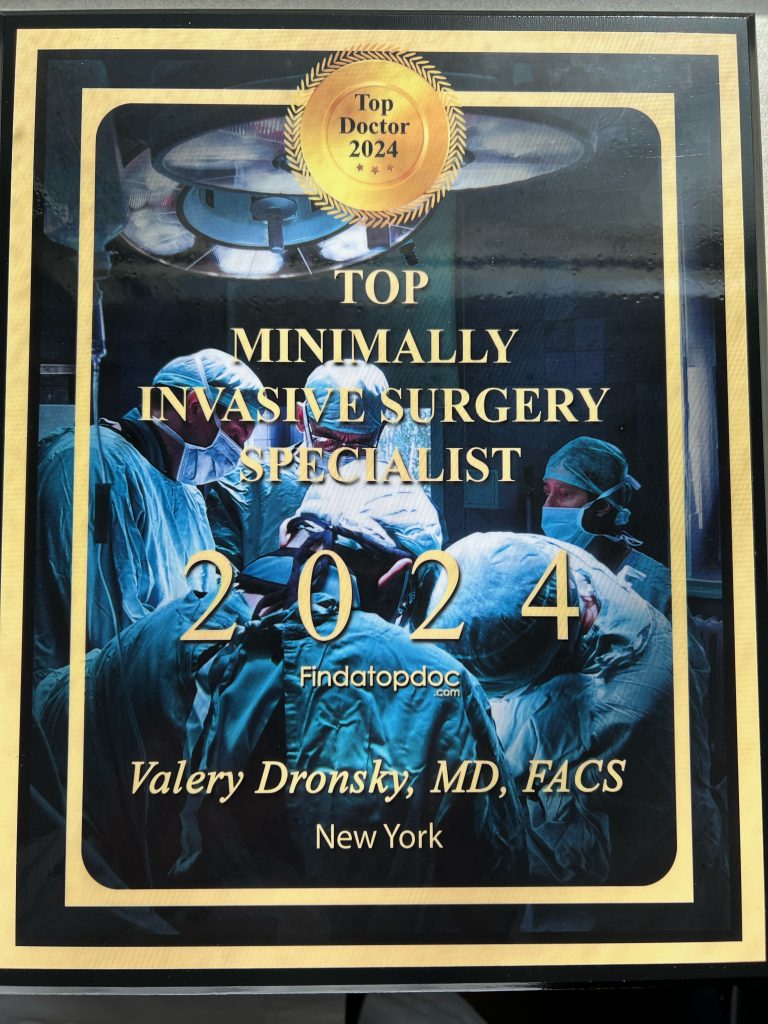
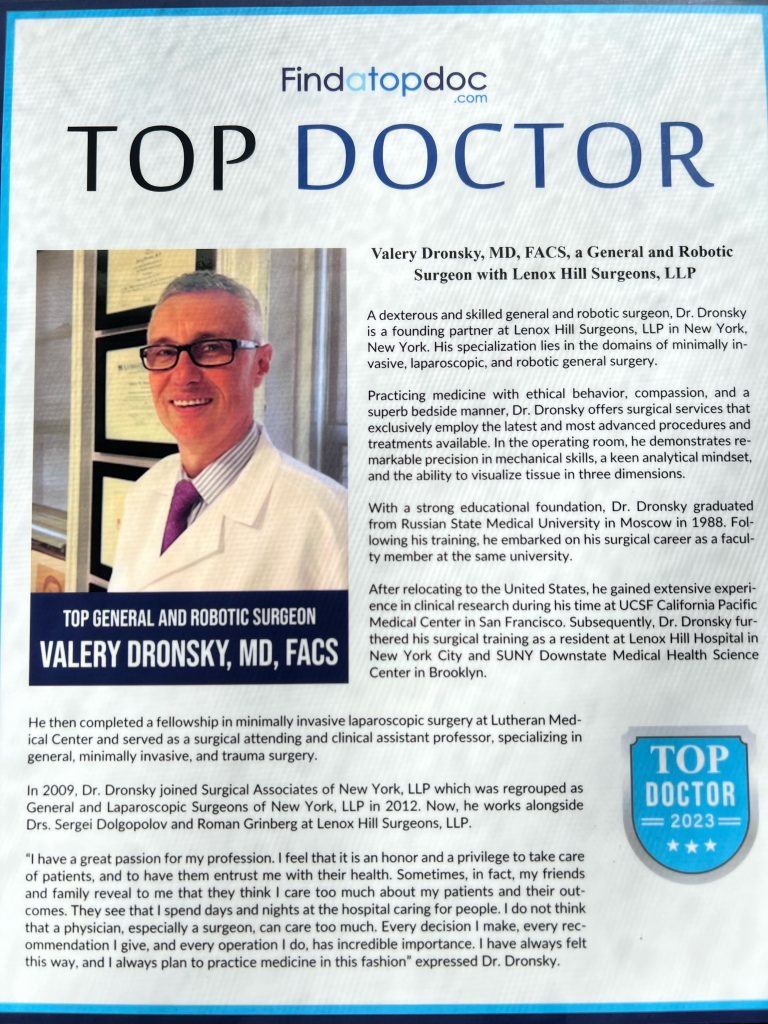


Visit our main website at www.LenoxHillMinimallyInvasiveSurgery.com
Blog Posts are Below:
Category Archives: Surgeon Information
Choosing the Right General Surgeon: Key Questions to Ask
If you need to get surgery, when it comes to your health and well-being, choosing the right general surgeon is crucial. Whether you require a routine procedure or a complex surgery, finding a skilled and experienced surgeon is essential for optimal outcomes. At Lenox Hill Minimally Invasive Surgery, a leading general surgery practice in New York City, we understand the importance of selecting the right surgeon. In this article, we’ll provide you with key questions to ask when choosing a general surgeon to ensure you make an informed decision.
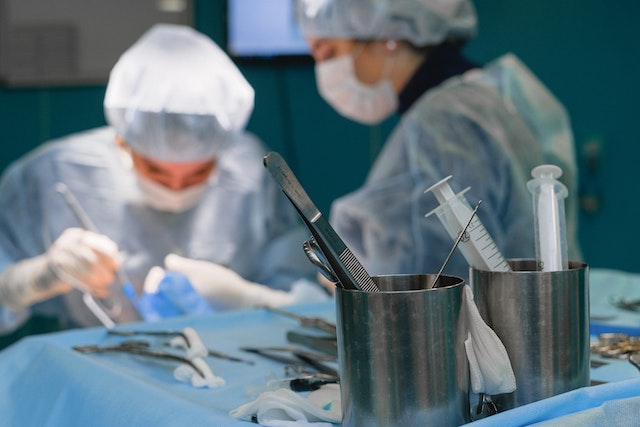
1. Are you board-certified in general surgery?
Board certification demonstrates that the surgeon has undergone rigorous training and has met the highest standards of knowledge and skill in the field of general surgery. It’s essential to ensure that the surgeon you choose is certified by the appropriate board, such as the American Board of Surgery.
2. What is your experience and specialization?
Inquire about the surgeon’s experience and expertise in performing the specific procedure you require. Ask how frequently they perform the procedure and if they have any sub-specializations within general surgery. A surgeon with significant experience and specialization in the procedure you need will likely yield better outcomes.
3. Where will the surgery be performed?
Ask about the surgical facility where the procedure will take place. Ensure that the facility is accredited and equipped with state-of-the-art technology. Lenox Hill Minimally Invasive Surgery operates in a modern facility with advanced surgical equipment and a highly trained staff, ensuring the highest quality of care.
4. What is the success rate for this procedure?
Inquire about the surgeon’s success rate for the specific procedure you require. A skilled surgeon will have a track record of successful outcomes. While no surgery is without risks, understanding the surgeon’s success rate can help you assess their competence and expertise.
5. What are the potential risks and complications?
A competent surgeon will be transparent about the potential risks and complications associated with the procedure. Ask about the specific risks and what measures will be taken to minimize them. Understanding the potential complications allows you to make an informed decision and be prepared for the recovery process.
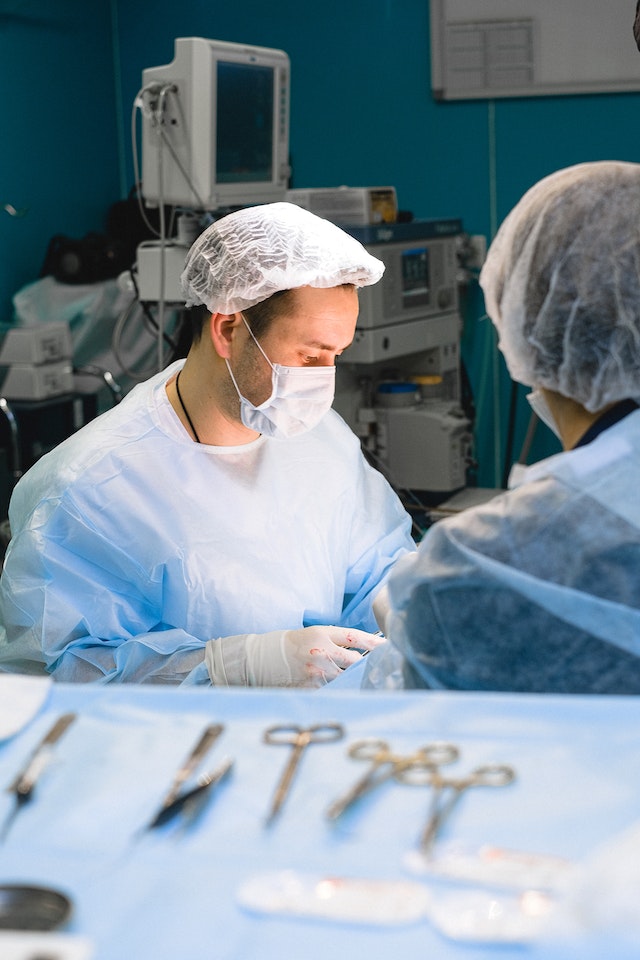 6. What is the recovery process like?
6. What is the recovery process like?
Understanding the recovery process is crucial for planning and managing your expectations. Ask about the expected recovery time, any post-operative care requirements, and restrictions on activities during the healing period. A good surgeon will provide clear instructions and support throughout the recovery process.
7. Can I see testimonials or speak to previous patients?
Requesting testimonials or the opportunity to speak to previous patients can provide valuable insights into the surgeon’s skill, bedside manner, and patient satisfaction. Hearing from others who have undergone similar procedures can help you feel more confident in your choice.
8. Do you accept my insurance?
Ensure that the surgeon and the practice accept your insurance coverage. Contact your insurance provider to verify the surgeon’s participation in your plan and to understand any potential out-of-pocket expenses.
Choosing the Right General Surgeon: Expert General Surgical Services at Lenox Hill Minimally Invasive Surgery
At Lenox Hill Minimally Invasive Surgery, we understand the importance of choosing the right general surgeon for your healthcare needs. Our team of skilled and experienced surgeons is committed to providing exceptional surgical care with a patient-centric approach. Contact us today to schedule a consultation and experience the expertise of our renowned surgeons.
LENOX HILL MINIMALLY INVASIVE SURGERY
117 E 77th Street
Suite 1A
New York, NY 10075
646-846-1136
admin@lenoxmis.com
Visit our website for more information: https://lenoxhillminimallyinvasivesurgery.com/
What Training Do The Top General Surgeons Receive?
General surgery involves post-residency training and specialty training. All General Surgeons are highly skilled and highly trained professionals. General surgeons are knowledgeable about the entire body and are skilled in performing accurate procedures. We can consider general surgeons the leaders of advanced disciplinary teams, health care systems, and hospitals. Their responsibility is to organize and perform complex operative care, whether in trauma, transplant, oncology, or GS.
Job Description of General Surgeon
General Surgeons carry out operations on parts of the body such as the colon, liver, gastrointestinal tract, endocrine system, and other main parts of the human body. Surgeons, for the most part, work all day and may often work extended periods of time at irregular shifts. In any event, when they are not in their work environment, surgeons must be accessible if the need arises. This means they can be approached to come into work anytime on the off days. These experts work in hospitals and other health centers.
Responsibilities and Duties of a General Surgeon
General Surgeons are responsible for the operation room, and supervising other medical experts to guarantee everything is done effectively. Like other medical experts, surgeons are liable for analyzing patients, diagnosing, and suggesting the best course of action. Some General Surgeons are additionally answerable for conducting and directing research in the field.
As a General Surgeon, a portion of the techniques you’ll perform includes bariatric surgeries, thyroidectomies, colonoscopies, and gallbladder or appendix removal. A portion of these surgeries are insignificantly invasive and are performed utilizing laparoscopic techniques. Others, for example, organ transplantation or removal, can be invasive.
Subspecialties
General Surgeons additionally have the ability to fan out into various specialties, for example, organ transplantation, pediatric surgery, or plastic surgery. One of the recent types of specialties includes performing surgeries, for example, bariatric surgeries and LAP-BAND, helping patients with obesity. Plastic surgeons can perform procedures that run from augmenting breasts to repairing injuries and wounds of the skin. Many General Surgeons additionally work with cardiovascular specialists on procedures including the heart; for example, heart transplant surgery and valve fix.
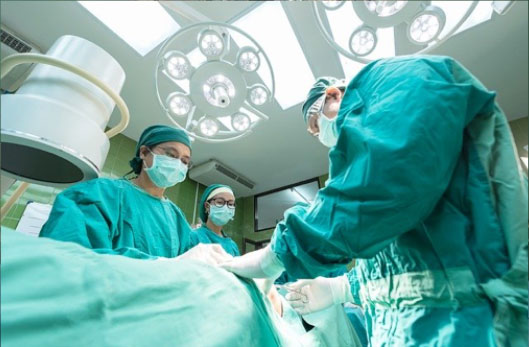
(Source)
Education and Training Required for General Surgeons
If you want to become a General Surgeon, you must:
- Complete your graduate and undergraduate education (a medical degree and a baccalaureate degree)
- After that, complete a five years residency program in general surgery. This consist of specialized knowledge about the vascular (circulatory) system, surgical oncology (follow-up with cancer patients, rehabilitation, surgical therapy, surveillance, management of screening), head and neck, endocrine system, critical care, comprehensive trauma management, soft tissue, skin, breast, alimentary tract (digestive organs), and abdomen.
- There are different requirements of the residency program for each specialty area, such as thoracic surgery is about five years of general surgery and also contains two years of practice in thoracic and cardiovascular surgery.
Licensure
Graduating from a medical school doesn’t consequently make you a licensed surgeon. You’ll have to earn licensure by passing the Comprehensive Osteopathic Medical Licensing Exam or the United States Medical Licensing Examination, depending upon whether you graduated with a Doctor of Osteopathic Medicine or Doctor of Medicine. These three-section exams evaluate your capacity to apply scientific or medical knowledge towards taking care of the patients and advancing health in a clinical limit. Additionally, if there are any other specific requirements you have to satisfy in your state, you’ll have to confirm with the state clinical licensing board.
Residency
After graduating from medical school, you’ll have to enroll for a five-year general surgery residency program. As an occupant, you’ll have chances to help with a variety of surgeries, just as to give pre-and post-operative consideration on patients. You can finish various clinical rotations in areas, for example, anesthesia, critical care, pediatric surgery, thoracic surgery, and cardiac surgery. You may, likewise, be required or urged to take part in the research.
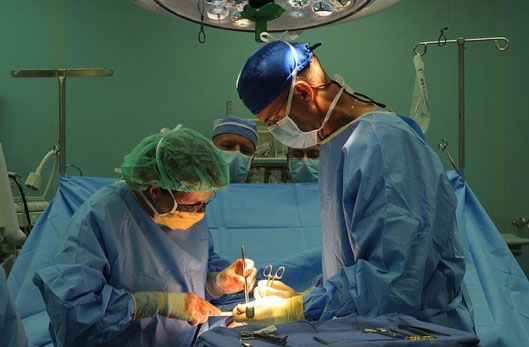
(Source)
A few things to consider
None of this ought to prevent you from pursuing your dreams to be a surgeon. However, it’s critical to know about the professional risks and what you can do to control them. Meditation, a healthy diet, regular exercise, and other things, for example, therapy, counseling, or even simply talking with your loved ones, will help reduce feelings of anxiety. So remember, despite the fact that a surgeon saves the lives of different people, taking care of yourself will be just as significant.
Conclusion
Your journey to turn into a surgeon will be challenging, long, but one of the most rewarding things you’ll ever do. You’ll utilize your hard-earned expertise to assist patients with living better lives while improving the surgical profession for ages of patients to come.
If you are looking for professional general surgeons for your condition, kindly contact us at 646-846-1136. You can also visit our website to book an appointment online at https://lenoxhillminimallyinvasivesurgery.com/.
The Role of General Surgeons in The Hospital
 Many people are familiar with the concept of surgeons having individual specialties. Generally, doctors and surgeons choose one area of the body to specialize in and, while a doctor in clinical practice will have to deal with multiple conditions affecting different parts of the body, surgeons rarely work outside of their preferred area. For this reason, most hospitals have a general surgeon. The role of a general surgeon is multifaceted and they are proficient in performing surgery in more than one area.
Many people are familiar with the concept of surgeons having individual specialties. Generally, doctors and surgeons choose one area of the body to specialize in and, while a doctor in clinical practice will have to deal with multiple conditions affecting different parts of the body, surgeons rarely work outside of their preferred area. For this reason, most hospitals have a general surgeon. The role of a general surgeon is multifaceted and they are proficient in performing surgery in more than one area.
What Does a General Surgeon Do
 General surgery NYC encompasses a range of different procedures but these are mainly centered around the torso, meaning a general surgeon usually operates on the gastrointestinal tract, from the esophagus to the anus. General surgeons may also operate on breasts and sometimes work alongside oncologists in removing cancers. The kidneys, pancreas, and liver are also areas covered by a general surgeon.
General surgery NYC encompasses a range of different procedures but these are mainly centered around the torso, meaning a general surgeon usually operates on the gastrointestinal tract, from the esophagus to the anus. General surgeons may also operate on breasts and sometimes work alongside oncologists in removing cancers. The kidneys, pancreas, and liver are also areas covered by a general surgeon.
Trauma to the abdomen, from assault or motor vehicle injury, can sometimes require emergency surgery, in which case a general surgeon will usually perform the procedure.
Many general surgeons do have a sub-specialty and this is important when they are working in the ER, as in addition to performing emergency surgeries for trauma to the abdomen, there will be instances where a more specialized surgery is required.
Most Common Procedures
Laparoscopic surgery, also known as minimally invasive surgery, or ‘keyhole surgery’, is an increasingly common part of a general surgeon’s professional life. Patients generally prefer this type of surgery as it is much less invasive, causes a lot less pain and discomfort than most surgery methods, and has a much shorter recovery time, requiring a shorter hospital stay.
Sub-Specialties

The most common sub specialties that general surgeons are trained for are as follows;
- Breast Surgery – this primarily involves the removal of breast tumors, as well as reconstructive surgery performing a mastectomy
- Lower gastrointestinal surgery – the primary role of the general surgeon here is again in the removal of cancers from the bowels and colon
- Endocrine surgery is for the thyroid and endocrine glands.
- Upper gastrointestinal surgery covers the esophagus, liver, stomach, and pancreas, and when patients receive surgery to aid with weight-loss, it is also covered by this specialty
General surgeons are an essential part of any hospital’s emergency and trauma units. The most common reasons for patients being admitted to trauma units, such as car crashes, collisions, and assault, often involve abdominal injuries, which are covered by the role of a general surgeon.















